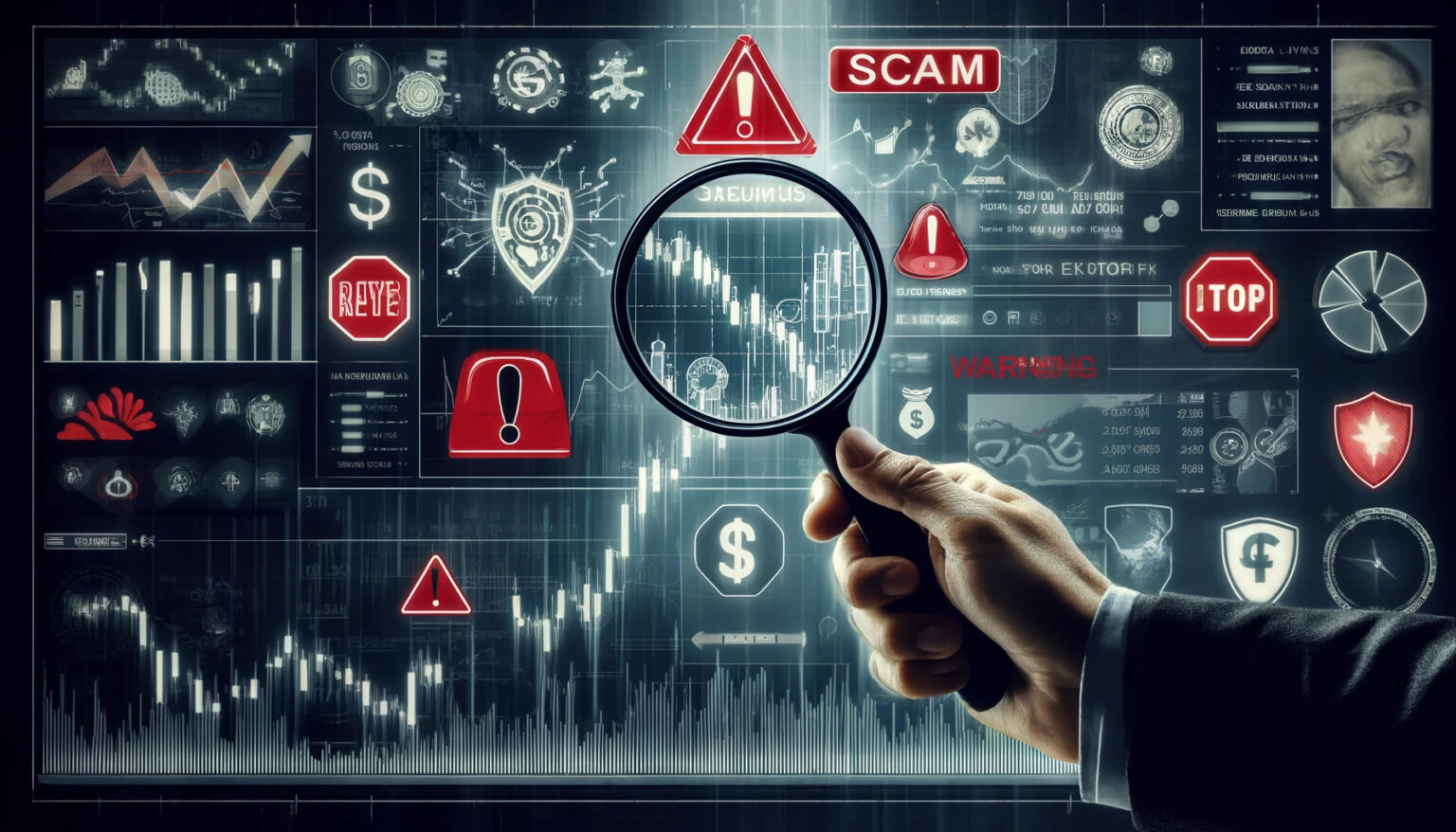
The forex (foreign exchange) market can be incredibly profitable but also highly volatile. Unfortunately, this volatility and the allure of fast profits attract scammers who prey on unsuspecting traders. It’s critical to know how to identify a forex scam to avoid losing your hard-earned money. In this article, we will highlight the warning signs that can help you spot fraudulent operations and keep your funds secure.

One of the first red flags of a forex scam is when a company insists that you send your money directly to them instead of maintaining custody of your funds with a trusted broker. In legitimate trading, you should always have the freedom to choose a regulated broker and retain control over your account. Scammers typically ask for direct deposits, promising high returns while limiting your ability to monitor the safety of your funds.
Key Tip: Always verify if the company allows you to trade through a reputable broker of your choice. Never send funds to a company that won’t let you control your account or your broker selection.
Scammers often force you to use a specific broker, usually an unregulated or offshore one. This creates a controlled environment where your funds may never be traded legitimately. A legitimate forex service should allow flexibility in broker selection. If the company restricts you to using their “partner” or “in-house” broker, it’s a major warning sign of potential fraud.
Key Tip: Check the broker’s regulatory status. Look for regulations from authorities like the FCA (UK), ASIC (Australia), or CFTC (USA).
A forex scammer will often promise unrealistic profits with no verifiable track record. A reputable forex service should be able to show proof of past performance, typically through verified platforms such as Myfxbook or FX Blue. Scammers, on the other hand, tend to use static results—guaranteeing the same percentage gains daily or weekly, which is highly unrealistic in forex trading due to market fluctuations.
Key Tip: Ask for verifiable trading records. Avoid companies that promise fixed or static returns, as legitimate forex profits always vary with market conditions.
A forex scam website often lacks transparency about its ownership. If you cannot find details about the people behind the company, that’s a huge red flag. Additionally, check the domain registration. Scammers often use cheap, untraceable services or hide their registration information to avoid being tracked.
Key Tip: Use tools like WHOIS lookup to check the domain registration. Be wary of recently registered domains or hidden ownership information.
Another common tactic used by forex scammers is to offer guaranteed profits, often promising a specific percentage gain per day or week. Forex is inherently volatile, and no legitimate trader can guarantee fixed returns. Scam websites often use these promises to lure in beginners who may not be aware of the risks involved in trading.
Key Tip: Be skeptical of any service that guarantees specific, consistent profits, especially with no variation over time. Markets fluctuate daily, and even the best traders experience losses.
Before investing in any forex platform, check for reviews and feedback from other traders. Scammers typically have little or no verifiable feedback, or they may be flooded with negative reviews warning others of their fraudulent activities. Additionally, look for customer testimonials on trusted review sites like Trustpilot or Forex Peace Army.
Key Tip: Conduct thorough research, including checking online reviews and complaints. If other traders have had negative experiences with the company, it’s a sign to stay away.
Forex scams often rely on aggressive marketing tactics, promising extraordinary profits with little to no risk. If you feel pressured into making an investment or are given a “limited-time offer” with high-pressure sales tactics, you should be suspicious.
Key Tip: Always take your time to research and make informed decisions. Legitimate companies won’t rush you into investing.
Lastly, always check if the company or broker is regulated by a recognized financial authority. Forex trading platforms must comply with strict regulations designed to protect consumers. Unregulated or offshore companies often operate without any oversight, making it easier for them to engage in fraudulent activities.
Key Tip: Verify that the company or broker is registered with a reputable regulatory authority. Be cautious if they claim to be “regulated” but cannot provide proof of certification.
latest posts